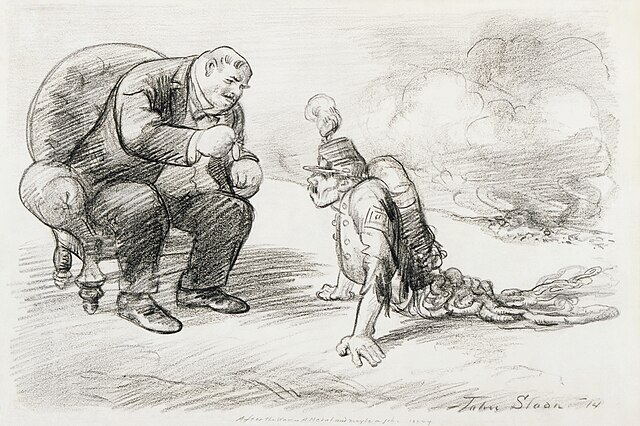Listen live from 9AM - 10AM Central on WNUR 89.3FM / stream at www.thisishell.com / subscribe to the podcast
9:15 - Writer Corey Robin explores the inconsistency and fear at the heart of the conservative mind.
Corey is author of The Reactionary Mind: Conservative from Edmund Burke to Donald Trump for Oxford University Press.
Listen live from 9AM - 10AM Central on WNUR 89.3FM / stream at www.thisishell.com / subscribe to the podcast
9:10 - Cultural critic Henry Giroux examines the rise of American authoritarianism, before and after Trump.
Henry is the author of the new book The Public in Peril: Trump and the Menace of American Authoritarianism from Routledge.
To Be Or Not To Be A Job
Welcome to the Moment of Truth: the thirst that is the drink.
Last week a friend of mine from El Salvador became a US citizen. Of course, to commemorate her joining the great red, white and blue horde, we celebrated with sushi. It's unprecedented that so many millions of people are now scrambling to get ahead of being deported in anticipation of a crazy President's actions. Traditionally the government comes and puts you and your family in concentration camps without much warning. Thank goodness Dump and the GOP Congress are so incompetent. It gives people time to worry and, if they're lucky, get themselves situated. Of course, even as a citizen, there's no guarantee Latins or any people of color won't suffer some kind of surprise new-fangled persecution under the nation's first white president.
My Salvadoran friend cleans houses and sells insurance. I remember how excited she was when she became certified to sell health insurance. Of course, I couldn't celebrate that. Back then she was taking not one, but two jobs from an American. Now that she is an American, those two jobs can now go to an American. As it should be.
One of the main perks of being a US citizen is that you can feel just about as entitled as a white person does. Not that you have the same racial privileges, but you can get as self- righteous as if you do. Just that simple designation, citizen, can give you an entirely new list of grievances. My friend got so outraged over immigrants coming up from Latin America, not learning the language, and stealing jobs from US citizens, she considered turning her mother over to ICE. But then she decided it would be too hard to find a new drug mule. And she couldn't in good conscience send her mother back to El Salvador, which the US prison system and deportation policies have turned into a gang-ruled land of violence of the type our white president likes to make out Chicago is.
As a citizen of a constitutional oligarchy like we have here in the States, my friend understands that she has certain responsibilities. It's not all just entitlements, free education, adequate housing, affordable health care, respectful, restrained police, no, it's none of those. Not even close. But even a government which has abrogated every social contract between itself and its citizens demands a duty from them. I forget what it is. It can't be the duty to be an informed voter. That doesn't help. It just... read more
Listen live from 9AM - 1:00PM Central on WNUR 89.3FM / stream at www.thisishell.com / subscribe to the podcast
9:15 - Author Aidan McGarry examines the origins and persistence of Romaphobia in Europe.
Aidan is author of Romaphobia: The Last Acceptable Form of Racism from Zed Books / University of Chicago Press.
10:00 - Writer Eleanor Finley explores the revolutionary potential of today's municipal movements.
Eleanor wrote the article The New Municipal Movements for ROAR Magazine.
10:35 - Journalist May Jeong traces warlord atrocities in Afghanistan back to US training.
May wrote the feature The U.S.-Trained Warlords Committing Atrocities in Afghanistan for In These Times.
11:05 - Historian Herb Boyd explains how Black workers and leaders built Detroit.
Herb is author of the book Black Detroit: A People's History of Self-Determination from Amistad Books.
12:05 - n+1 editor Nikil Saval looks at the rise of Uber and sees oligarchy in the driver's seat.
The editors of n+1 wrote the essay Disrupt the Citizen in their latest issue.
12:45 - In a Moment of Truth, Jeff Dorchen lays out the perks and responsibilities of citizenship.
Dang what happened to Jeff?
The Futurologist's Problem
Welcome to the Moment of Truth: the thirst that is the drink.
I got together with my friend Professor Wadwa the other night for drinks. Let me explain, first of all, that this is not Professor Vivek Wadhwa, the noted academic, entrepreneur, and advocate for decency in immigration law. This is Professor Manish Wadwa, the noted futurologist, wannabe thought leader and tax consultant.
He has money, and when he's in town he treats me to drinks. He earned his money the old-fashioned way: slipping on the ice in front of Neiman-Marcus. But he's very generous because, although he considers himself a rugged individualist and a self-made man, he freely admits luck has had a lot to do with his current financial well-being.
After an evening's conversation with the professor, I'm usually left inspired and confused. Let me see if I can organize my thoughts enough to describe what we discussed.
I believe Wadwa had an idea, which can be summed up thus: what if there were a computer job exchange to divide up the jobs no one wanted to do, so everyone could do them for a little bit a week instead of some unlucky slobs having to do them all day every day for their entire lives?
Wadwa has a keen mind, but most of his brilliant ideas leave a lot of unanswered questions. "What," I asked him, "would be the incentive for the rich to do their part? They could just pay the poor people to do their share of the lousy jobs, and we'd be back where we started.
"What if it was more than a lousy-job exchange?" I went on. "What if it was a global database of everything everyone needed to have someone else do, or to have help doing? And these jobs, tasks, help on a project, they'd be divorced from money."
"Why would someone do something for no money?" Wadwa asked.
"I don't know, why did people do things before there was money? Mutual community welfare and gratitude, prestige, affection."
"But those things are impossible to measure," Wadwa countered, "that's why money's superior. Anyway, a lot of people would show their gratitude and affection with gifts, which the wealthy have more power to give."
"All right, how about this," I probed. "What if robots did everything? Our system is already computerized, we just network all the things, like an internet of things, the whole thing, and robots do everything."
"What about brain surgery?"
"A robot can do brain surgery! It's not – it's just brain surgery."
"What about... read more
On This Day in Rotten History...
In 1732 – (285 years ago) – the armory at a castle in Campo Maior, Portugal — which contained some five thousand pieces of ammunition, and almost a hundred tons of gunpowder — was struck by lightning during a thunderstorm. The explosion was spectacular, not only destroying the armory but starting a fire that caused major damage to the castle and its fortress, injuring most of its inhabitants.
In 1893 – (124 years ago) – one of the last large tracts of unassigned public land in the American West was opened for settlement in a land run at the so-called Cherokee Outlet in what is now the state of Oklahoma. The Cherokee nation had been pressured to sell the federal government six million acres of grazing land. On the morning of the land run, more than a hundred thousand people with horses and wagons prepared to race into the area to plant claim flags on some forty thousand surveyed and plotted homesteads. Some of the would-be settlers had been camping in the area for months — and though US Army troops tried to keep order, they failed to prevent a number of violators, later known as “Sooners,” from sneaking in before the noontime starting gun to grab the best plots of free land for themselves. In the manic chaos of the run, most participants failed to claim a plot. And of those who did, many would soon be disappointed to find that the dry, dusty land was no good for growing crops.
In 1977 – (40 years ago) — Marc Bolan, star of the British pop-rock band T. Rex, emerged at four in the morning from a long dinner with friends at a restaurant in London’s Berkeley Square. He was accompanied by his girlfriend, the American singer Gloria Jones. It had been a long day and evening, and Bolan had been drinking through most of it. He gave Jones the keys to his Mini GT, and they began the drive home. Neither Bolan nor Jones wore a seat belt. Less than a mile from Bolan’s house, Jones lost control of the car — which slid off the road, crashed into a steel-reinforced fence, and came to rest at the base of a sycamore tree. Both occupants were thrown from the car. Jones survived the accident, but Bolan’s skull was ripped open by a protruding bolt on a fencepost, and he died instantly — two weeks before what would have been his thirtieth birthday.
Rotten History is... read more
Listen live from 9AM - 1:00PM Central on WNUR 89.3FM / stream at www.thisishell.com / subscribe to the podcast
9:15 - Security analyst Azeem Ibrahim explores Myanmar's campaign of genocide against the Rohingya.
Azeem is author of The Rohingyas: Inside Myanmar’s Hidden Genocide from Oxford University Press.
10:00 - Journalist Sharon Lerner examines the legacy of environmental racism the EPA ignores.
Sharon wrote the articles A Legacy of Environmental Racism and EPA Welcomed Industry Feedback Before Reversing Pesticide Ban, Ignoring Health Concerns for The Intercept.
10:35 - Journalist Martha Pskowski explains how Coca-Cola is sucking Chiapas dry.
Martha wrote the article Coca-Cola Sucks Wells Dry in Chiapas, Forcing Residents to Buy Water for Truthout.
11:05 - Author Sasha Abramsky explains how irrational fear rules, and guides, life in America.
Sasha is author of the book Jumping at Shadows: The Triumph of Fear and the End of the American Dream from PublicAffairs.
12:05 - Sociologist Christian Parenti watches capitalism's climate-driven crisis wash away our cities.
Christian wrote the article If We Fail for Jacobin.
12:45 - In a Moment of Truth, Jeff Dorchen has drinks with a wannabe thought leader and tax consultant.
Jeff's Tinder algorithm might need some retooling.








